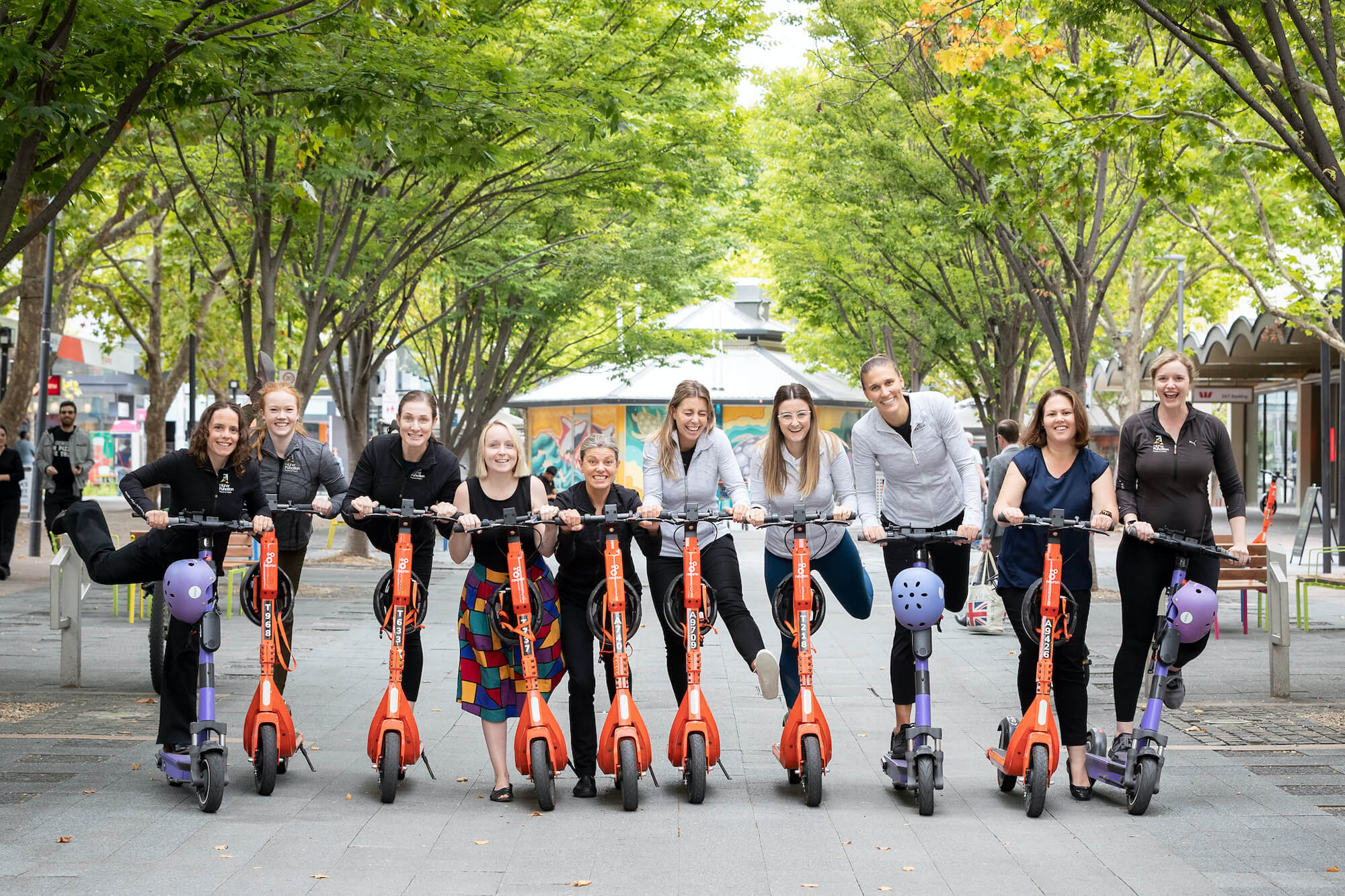By Sam Catherall – Exercise Physiologist
Drinking caffeine and still exhausted?
Caffeine is consumed heavily in modern society, with Australian adults (aged 19-70 years) reported consuming between 103-183 mg per day1, which equates to 2-3 cups of coffee. Caffeine is a stimulant utilised as a fatigue countermeasure, yet its physiological effect is not yet completely understood. No regulation guidelines exist for caffeine in Australia, so ongoing research into its effects is important. Amongst current evidence for caffeine’s effect on the body includes athletic performance, cardiovascular risk and delaying the onset of cognitive decline. Additionally, caffeine consumption may correlate with sleep deprivation, so it may be important to reflect on why you are reaching for yet another cappuccino.
Physiology of caffeine ☕
Caffeine acts on all tissues in the human body. Its pharmacological effects are due to its competitive antagonism of adenosine, a primary player in the central nervous system. Adenosine works by dilating blood vessels and relaxing the body into its sympathetic, rest and digest state and upregulates to promote sleepiness2. At a dietary dose, caffeine interferes with this relaxing pathway, blocking adenosine from doing its job, which will increase alertness. Even though coffee is a stimulant, many do not experience the outcome they desire, and some may even be able to consume caffeine late in the evening and sleep comfortably. This phenomenon poses the curiosity in why you can be consuming coffee, but still feeling exhausted.
The sleep / caffeine round-about 😴
Sleep deprivation and caffeine consumption has been well researched, and conflicting results continue to emerge1, but trials show a correlation between poor sleep and caffeine consumption often. Biological differences in caffeine’s half-life, tolerance & dependence, withdrawal symptoms and sleep quality vary amongst individuals and is extremely hard to objectively measure. A review in 20182 proposed the idea of the “sleep sandwich”, where 2 days of caffeine consumption surround a period of caffeine deprivation, overnight sleep. If caffeine consumption is not regulated during the first daytime, sleep deprivation will ensue, and performance deficits will be experienced the following day, where the individual will rely on further caffeine to bolster performance. It is often suggested that individuals develop a tolerance to the benefits associated with caffeine consumption, yet others suggest tolerance develops and diminishes quickly, as with overnight abstinence3.
Benefits and Adverse Effects
A variety of health outcomes have been described in the literature regarding caffeine consumption including increased alertness, increased athletic performance, elevated mood and even a lower chance of mortality4. Although, caffeine does not come without its adverse effects. Individuals who habitually consume caffeine can develop a physical, emotional, and psychological dependence as early as 3 days of exposure and after an abrupt cessation, may experience symptoms of withdrawal. Headaches, fatigue, irritability and even flu-like symptoms are amongst the experienced symptoms of caffeine deprivation5.
Caffeine and blood pressure
Caffeine will acutely increase blood pressure at rest, during cognitive tasks and during exercise3. Research has shown that an average daily intake of coffee can elevate systolic BP as much as 14 mm Hg (read our insight ‘Exercise for your Heart’), and these effects can last for 3-4 hours depending on the individual. This BP rise in response to caffeine is dose dependent and will continue to rise until approximately 3mg/kg body weight (the equivalent of 210 mg, or 2.5 cups of coffee in a 70kg man) where it plateaus. Higher doses do NOT produce any increase in this response, suggesting that the adenosine receptors are well occupied at lower doses and arises curiosity into the benefit of further caffeine consumption.
So how can you maximise the benefits of coffee? ✅
- Get enough sleep and focus on other recovery essentials
Although the caffeine component of your daily coffee(s) may increase alertness, it cannot mask underlying sleep deprivation long term. If you are feeling tired despite caffeine consumption, you may be sleep deprived. Additionally, an exercise physiologist can help you develop other strategies to boost alertness such as sleep hygiene, adequate hydration, dietary protein and stress management.
- Drink coffee strategically
Coffee has been engrained into the workforce social culture. Monitor your caffeine consumption and any symptoms you may have. Tolerance is different between individuals, if you notice a change in productivity or negative effects associated with your consumption, consider reviewing your current intake.
- Exercise
The benefits of regular physical activity are well documented. Participation in at least 150min of moderate cardiovascular activity per week can aid in
- Management of chronic conditions and reduce the risk of development
- Improve sleep
- Boost immune functions
- Manage stress and anxiety
- Improve capacity for work and education
- Reduce sense of exertion by a “resetting” of the sensory threshold for effort
References
https://www.ncbi.nlm.nih.gov/pmc/articles/PMC6292246/
https://www.ncbi.nlm.nih.gov/pmc/articles/PMC8101832/
https://www.ncbi.nlm.nih.gov/pmc/articles/PMC5788283/


